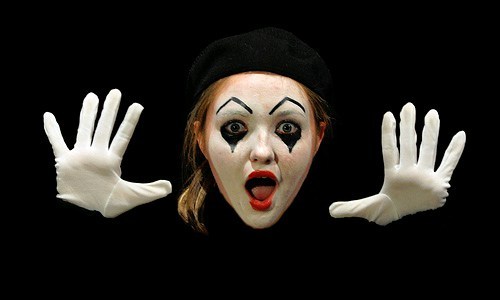Some studies have shown that people form first impressions based 55% on body language and only 7% on actual verbal content. Actions really can speak louder than words. You start making a non-verbal impression from the moment you walk in the lobby door until the moment you leave. Some non-verbal mistakes can ruin your chances of a job offer, even if your answers to the interview questions are impressive.
Preparing to Make a Great Impression
Let’s start with the basics of non-verbal communication in an interview: your first impression.
Beauty is only skin deep, but you will make a visual impression within seconds of meeting your interviewer – before you get the opportunity to say a word. You can immediately turn an interviewer off if you look (or smell) unprofessional, slovenly, or nervous.
How you look: Make sure that you are dressed properly from top to bottom. It’s not about looking beautiful, it’s about presenting a professional, confident persona.
How you smell: This may sound obvious, but it’s essential to avoid making a bad olfactory first impression. Don’t walk into your job interview smelling like you’ve bathed in cologne or perfume, reeking of cigarette or cigar smoke, or emanating eau de locker room or dirty laundry hamper.
What you bring: Don’t forget to bring a few hard copies of your resume (at least one for each of the people you’re scheduled to meet, plus an extra or two just in case). Bring your portfolio and work samples, if appropriate, and make sure that they are organized professionally. Be prepared for emergencies by adding the following to your job interview survival kit: gum or mints, tissues, safety pins, a mini-lint roller, and make-up for touch-ups (if you wear it).
Waiting in the Lobby
Make a point of greeting the receptionist professionally before taking a seat to wait for your interviewer. Be polite, but not overly friendly. You never know who might be watching you while you wait, so don’t slouch in your chair and read Us Magazine or sing along to your iPod. Don’t take phone calls or obsessively check your Blackberry or iPhone as if you have better places to be. Sit down and wait patiently. Review your interview preparation notes or any company materials displayed in the lobby.
Greeting Your Interviewer
Walk confidently to greet your interviewer, make eye contact, smile, and offer your hand. This is your only chance to make a first impression.
During the Interview
Your Posture: When you take your seat, be sure to sit up straight and avoid slouching. You can lean forward a little to show your interest. The goal here is to appear natural, confident, and enthusiastic. Avoid any body language that could be construed as showing disinterest or desperation. Don’t lean back (you’ll look too relaxed or lethargic) or fidget (you’ll look nervous or immature) and don’t invade your interviewer’s personal space (you’ll look like a stalker).
Your Hands and Feet: Keep your feet on the floor and your hands positioned naturally. If you’re not sure what to do with your hands, keep them folded loosely in your lap or on the tabletop.
Eye Contact: Maintain eye contact in a natural way. Just don’t stare fixedly at your interviewer. That can seem creepy or robotic. Listen carefully and smile and nod as appropriate.
Wrapping up the Interview
Once the interview is over, when you thank your interviewer politely for her time, shake her hand professionally and smile.
And keep in mind that even if your interviewer isn’t the best, try to maintain a good impression until you leave.
Then it’s time to walk confidently out the door, secure in the knowledge that you’ve made a winning non-verbal impression.
